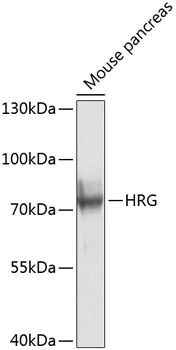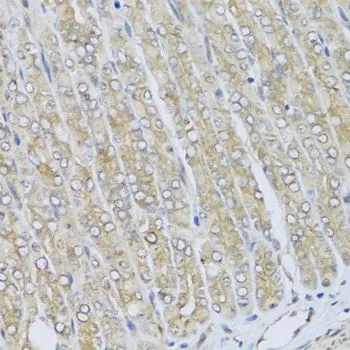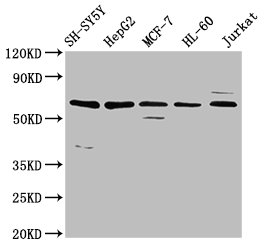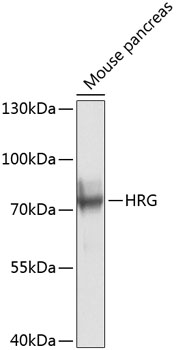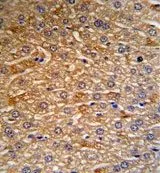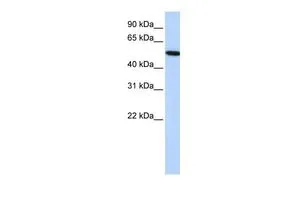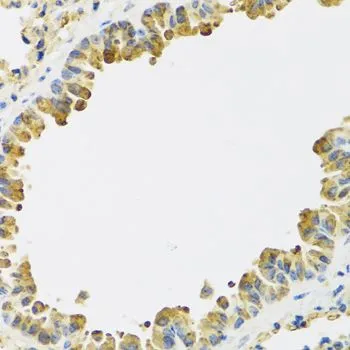
IHC-P analysis of mouse lung tissue using GTX64492 HRG antibody. Dilution : 1:100
HRG antibody
GTX64492
ApplicationsWestern Blot, ImmunoHistoChemistry, ImmunoHistoChemistry Paraffin
Product group Antibodies
ReactivityHuman, Mouse, Rat
TargetHRG
Overview
- SupplierGeneTex
- Product NameHRG antibody
- Delivery Days Customer9
- Application Supplier NoteWB: 1:500 - 1:2000. IHC-P: 1:50 - 1:100. *Optimal dilutions/concentrations should be determined by the researcher.Not tested in other applications.
- ApplicationsWestern Blot, ImmunoHistoChemistry, ImmunoHistoChemistry Paraffin
- CertificationResearch Use Only
- ClonalityPolyclonal
- ConjugateUnconjugated
- Gene ID3273
- Target nameHRG
- Target descriptionhistidine rich glycoprotein
- Target synonymsHPRG, HRGP, THPH11, histidine-rich glycoprotein, histidine-proline-rich glycoprotein
- HostRabbit
- IsotypeIgG
- Protein IDP04196
- Protein NameHistidine-rich glycoprotein
- Scientific DescriptionThis histidine-rich glycoprotein contains two cystatin-like domains and is located in plasma and platelets. The physiological function has not been determined but it is known that the protein binds heme, dyes and divalent metal ions. The encoded protein also has a peptide that displays antimicrobial activity against C. albicans, E. coli, S. aureus, P. aeruginosa, and E. faecalis. It can inhibit rosette formation and interacts with heparin, thrombospondin and plasminogen. Two of the proteins effects, the inhibition of fibrinolysis and the reduction of inhibition of coagulation, indicate a potential prothrombotic effect. Mutations in this gene lead to thrombophilia due to abnormal histidine-rich glycoprotein levels. [provided by RefSeq, Nov 2014]
- ReactivityHuman, Mouse, Rat
- Storage Instruction-20°C or -80°C,2°C to 8°C
- UNSPSC41116161

